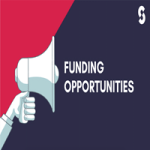
Deadline Date: September 01, 2025
Grant Size: $10,000 to $100,000
Category: Fellowship
Reference URL:https://www.cancerresearch.org/immun
The Cancer Research Institute Immuno-Informatics Postdoctoral Fellowship Program supports qualified young scientists at academic research institutions around the world who wish to receive dual training in immunology and data science.
The fellowships will support both computational biologists who seek to strengthen their knowledge of immunology and cancer immunologists who seek training in computational biology, data science, and/or genomics under the mentorship of world-renowned scientists in these disciplines.
They will also consider applicants from diverse PhD fields who will train at the interface of cancer immunology and computational biology. The program is designed to train and equip the next generation of scientists with the knowledge and practical tools to pursue novel research ideas bridging immunology and computational biology.
Funding Information
- Newly awarded fellowships provide a stipend of $74,000 for the first year, $76,000 for the second year, and $78,000 for the third year.
- An allowance of $5,000 per year is allotted to the host institution for use at the sponsor’s discretion to help pay for the fellow’s research supplies, travel to scientific meetings, health insurance, and/or childcare.
- CRI provides additional support for fellows to attend CRI’s annual International Cancer Immunotherapy Conference (CICON), and to participate in CRI’s soon-to-be-launched Bioinformatics Bootcamp.
- Deductions for administrative overhead are not allowed from either the stipend or the institutional allowance. Payments are made monthly in U.S. currency to the host institution.
Eligibility Criteria
- Project Criteria
- Project must be hypothesis-driven in basic or translational cancer immunology or immunology. The applicant should make every effort to demonstrate the potential of the proposed study to directly impact their understanding of the immune system’s role in cancer by leveraging the use of innovative technologies and/or computational methods including high throughput “omic” methods and data analyses. A successful proposal will include how the project intends to address the current gaps in cancer immunology.
- The application should also address new skills expected to be gained by the applicant in either immunology and/or computational biology including theoretical knowledge and practical skills. Applicants are encouraged to identify a secondary co-mentor in addition to their primary sponsor that addresses the gaps in their knowledge of either immunology or computational biology.
- Applicant Eligibility
- Applicants for the CRI Immuno-Informatics Postdoctoral Fellowship must be working in areas directly related to immunology or cancer immunology. An eligible project must fall into the broad field of immunology with relevance to solving the cancer problem.
- Applicants must have a doctoral degree by the date of award activation and must conduct their proposed research under a sponsor who holds a formal appointment as an assistant professor or higher rank at the host institution.
- Applicants with 5 or more years of relevant postdoctoral experience at the time of award activation are not eligible, with the exception of MD applicants, who should not include years of residency in this calculation.
- Only in exceptional circumstances will applicants who have already spent 3 or more years in a sponsor’s laboratory by the start date of fellowship be considered for a fellowship award.
- The fellowship must be performed at a non-profit institution in the United States or abroad. There are no citizenship restrictions.
- Only one fellow per sponsor may apply per application round, and faculty sponsors may not have more than three CRI-supported fellows at any time.
- Before you can access the online application form, you will first be asked to answer six questions that will help determine whether you are eligible to apply for a CRI Fellowship. If you meet the required criteria, you will be directed to the online application. If you do not meet the required criteria, please do not apply, as your application will be eliminated for administration reasons.
Application Requirements
- Brief description of the applicant’s background and research accomplishments. Maximum 500 words.
- Provide a brief description of the knowledge and skillsets you aim to attain during your CRI funded training period. Describe the gaps in your knowledge and skillsets that have been missing from your training to this point and how specifically this training opportunity will help fill those gaps and enhance your understanding of immunology and/or computational biology (examples may include opportunities in the mentor/co-mentor lab, resources available at training institution, external training opportunities etc.) Maximum 250 words.
- List of other funding sources to which applications have been or will be submitted, with due dates.
- Applicant’s curriculum vitae and bibliography (NIH biosketch preferred).
- Brief summary of your project, including a description of how the proposed research is relevant to understanding the role of the immune system in cancer and/or the treatment of cancer through immunological means. Maximum 500 words.
- Abstract of research in non-technical English explaining the importance of the proposed research and its potential clinical relevance. The abstract will be used for fundraising purposes and submitted to CRI’s lay Board of Trustees. Abstract limited to 250 words.
- Specific aims of the project. Maximum 500 words.
- Concise research proposal (background, significance, materials and methods) not to exceed 4 pages inclusive of tables and figures, exclusive of references.
- Letter from the sponsor introducing the applicant and describing the sponsor’s qualifications to direct the proposed research. The letter must contain assurance that the applicant’s project will be conducted under the direct supervision of the sponsor. Finally, sponsors are asked to indicate whether the application was written by the applicant and also whether any preliminary data included in the proposal was generated by the applicant or by the lab prior to the applicant’s arrival.
- Sponsor’s curriculum vitae/biosketch and a list of sponsor’s current research support. NIH biosketch is preferred. If including a formal C.V. then limit bibliography to past 5 years.